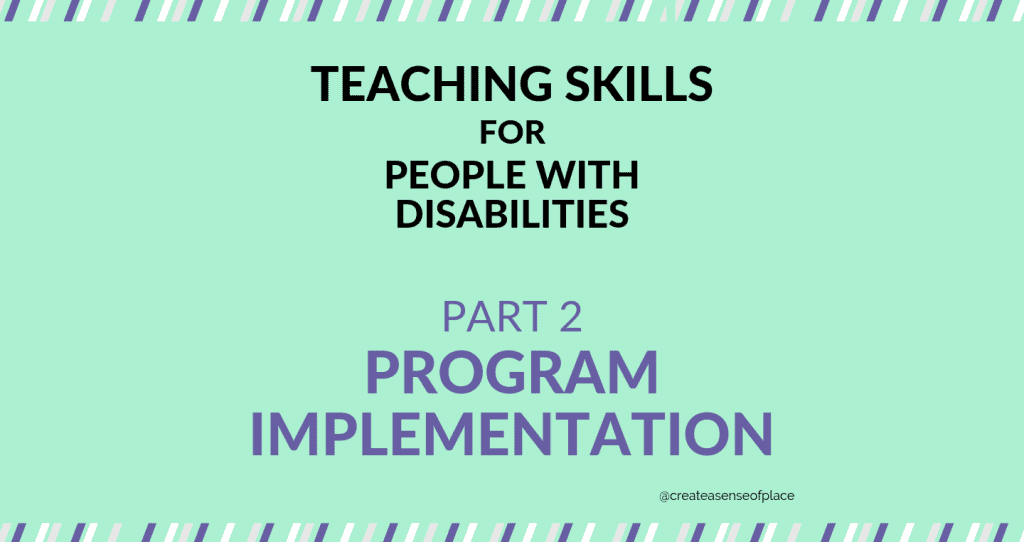NDIS funding focuses a lot on capacity building, and we often see that there has been limited capacity building, due to the wrong supports in place. Skill instruction for people with disabilities is a specialist skill. It cannot be assumed that support workers have the necessary skills and experience to achieve learning outcomes for people who as adults have not yet acquired important living skills.
Last week we looked at Designing the Program to suit a person’s individual needs.
Today we are talking about:
Stage Two – Program Implementation, putting the program into action!
With the designed skill program , run through the task with the person.
Take notes on what level of prompt was required and the response.
The benefit of having a written program is that it will be more consistently applied by various workers with greater reliability and consistency. This is important, as support workers will do things differently and have different expectations of the learner.
The program will also feature in the person’s routine. There will be a minimum number of times the task will be performed daily/weekly.
Notes should be taken consistently throughout the program to support review time, so that changes can be made, but importantly, so successes can be identified.
Next week we will look at the Review and Monitoring Stage.





